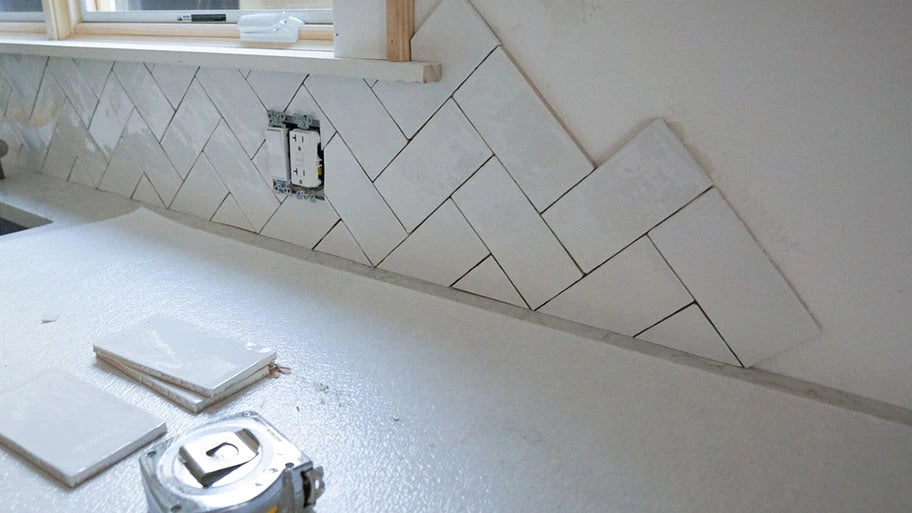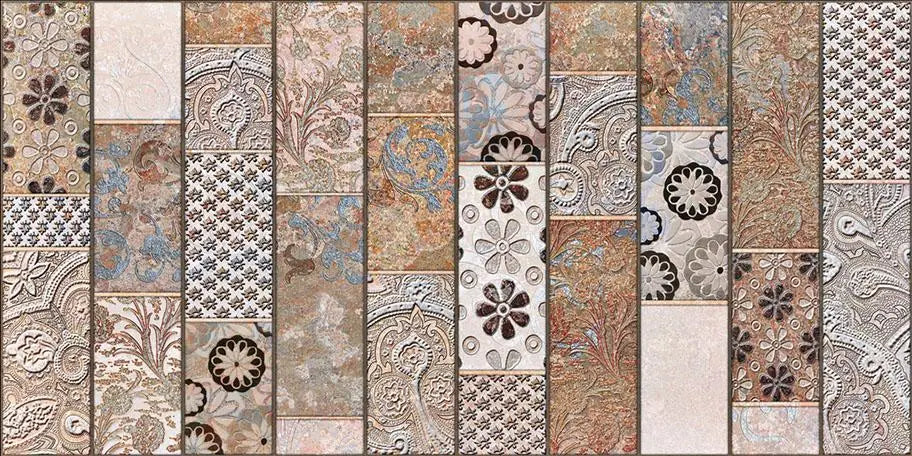Source: Beyond Time/Shutterstock.com
In laundry rooms, which are prone to humidity and moisture, there is no better wall and flooring option than tile. Not only does it protect your interior, but it provides a more sanitary place to do your laundry, it is easy to clean, and it comes in a huge variety of colors and patterns, from natural stone to faux-wood.
Why Tile?
Ceramic and porcelain tiles are durable, waterproof, or water-resistant; are available in an assortment of colors and decorative patterns, and are relatively easy to clean and maintain. In many cases, all you have to do is sweep or vacuum the floor tiles and mop or wipe floor and wall tiles with mild detergent and warm water. If more thorough cleaning is required, use a specially formulated tile cleaner to remove grease and built-up grime, but never use wire brush, steel wool, or steel scouring pads because these can severely scratch the surface finish.
Installation
With the right tools, any DIY enthusiast can install ceramic and porcelain tiles in their laundry room. Some of the most important tools for installing tiles are tile leveling spacers, which prevent misalignment that can lead to lippage. You’ll also need the right grouting trowel; a square-notched trowel is suitable for floors while a V-notched trowel provides greater surface area for wall tiles to adhere.
If you are installing tiles on your walls or as a backsplash, a ledger made from MDF and screwed to the wall underneath the area to be tiled gives your tiles a firm foundation to rest on as they dry. Once the adhesive and grout are set, remove the ledger and patch the holes.
Browse Our Selection of Tiling Tools 
Source: On The Run Photo/Shutterstock.com
Tile Applications
You can upgrade your laundry room by applying tiles in a variety of ways, including:
Flooring
Both ceramic and porcelain tiles offer increased water resistance compared with many other flooring options. For ceramic tiles to be waterproof, they need to be glazed. Porcelain tiles, however, are non-porous and don’t require the same kind of surface treatment. Tile floors in your laundry room also provide increased traction over other flooring options. In a wet environment such as a laundry room, this can significantly reduce your risk of slipping and sustaining an injury.
Countertops
While many laundry room countertops are made from stainless steel, laminate, wood, or stone, nothing offers the ideal combination of ruggedness and style as porcelain tiles. You can place wet or dry laundry, detergent, bleach, and other cleaning products directly on these surfaces without worrying about your countertop staining and absorbing harsh chemicals or foul odors. Due to their density and smooth surface, porcelain tiles are less prone to developing mold or breeding bacteria for a more hygienic laundry room.
Backsplash
The backsplash uses tiles to protect the part of the wall located behind the countertop. As the tiles extend upward, they form a barrier, ensuring that water, soap, and other chemicals don’t damage your walls. Some cleaning products, including bleach and ammonia, can stain or discolor wallpaper and paint. If you wash clothing by hand in a laundry sink, no matter how careful you are, this can cause splashback. Backsplashes also offer an opportunity to showcase your style. Don’t be afraid to get creative with the design for the backsplash using accent tiles or elaborate mosaic designs.
Laundry Rooms Walls
Although it’s important to protect the wall behind the countertop and sink, the rest of the laundry room’s walls can also benefit from porcelain tiles to prevent mold from the humidity that builds in the damp space. Decoratively colored or patterned wall tiles can brighten up your laundry space, making it a more enjoyable place to wash and fold your clothes.

Source: Diana Kreacion/Shutterstock.com
Style Choices
You can personalize your space with tiles, creating an inviting atmosphere and giving the illusion of a larger space, depending on the color and pattern. For a modern, minimalist feel, consider black tiles. Using dark subway tiles can give a look that appears almost like brickwork. Alternatively, laying white and black tiles offers a classic approach to home décor that is sleek and refined.
If a rustic or farmhouse aesthetic is more to your taste, stone-like tiles with warm colors like terracotta or ochre can complement wooden furniture, wall trim, brass or bronze accents, door handles, and switch plates.
Shop All of Our Tiling Tools
Improving Your Laundry Room with Tiles
Every part of your home should be inviting and pleasant, including your laundry room. Aside from the practical benefits of tiles, you can also use them to transform your walls into an artistic display, bringing out the best of what the room has to offer.
Part of home maintenance includes cleaning, maintaining, and restoring your flooring and walls. At Contractors Direct, we have all the tile tools and supplies you need, from tile saws to trowels, to install wall and floor tiles yourself, keep them in excellent condition, or repair and replace them.

